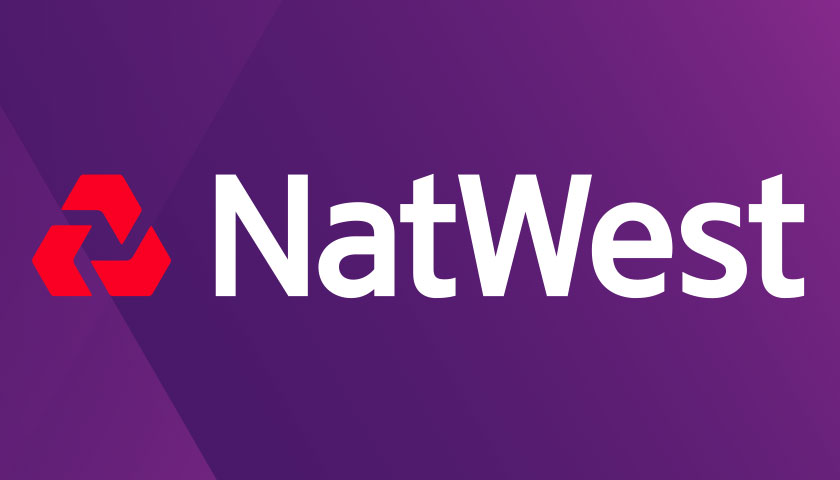A report published by NatWest sets out the potential opportunity that exists for the UK economy from the transition to net-zero, finding that SMEs could create up to 130,000 new jobs, produce around 30,000 new businesses and result in an estimated £160 billion opportunity for the UK economy. The report finds that there is a significant opportunity for the UK to be a global leader in the transition to net-zero.
The report also found that the UK’s 6 million Small to Medium Enterprises (SMEs) can achieve 50% of the UK’s Net Zero decarbonisation goals, if they receive the right support through funding, knowledge, and training.
NatWest has announced a series of initiatives, leading with a target to provide £100 billion of Climate and Sustainable Funding and Financing (CSFF) by the end of 2025. Part of this new CSFF target will help to support the investment needed to transition the UK to a net zero economy and will help to support the bank’s customers including SMEs on their transition to a net zero and a more sustainable economy*.
This marks an acceleration in NatWest’s ambition to support UK decarbonisation and the Government’s Net Zero Strategy, in-line with the 10-point plan for a Green Industrial Revolution. The report and its associated initiatives are intended to support the efforts to halve the bank’s financed emissions by 2030 and meet the net zero targets by 2050, in line with its commitments as a founding member of the Net Zero Banking Alliance.
While the report’s finding that less than 10% of SMEs currently see climate action as a source of future growth, it found that SMEs have two distinct opportunities to create value from delivering climate action: driving business value by reducing their own emissions and unlocking growth through wider climate action. With the right support, the vast majority of SMEs could benefit financially from reducing their carbon footprint, and through supporting the UK’s transition by delivering activity like residential retrofitting, installing renewable power equipment, upgrades to the electricity grid and installing electric vehicle charge points.
The report calls on financial institutions, government, industry bodies and large corporates to play their role in collectively supporting SMEs to unlock the climate opportunity.
NatWest also plans to launch a new green loan product for SME customers, new specialist Accelerators for Clean Transport and Circular Economy, new tools for businesses to monitor their carbon footprint, and mandatory climate training for all its relationship managers in collaboration with University of Cambridge and University of Edinburgh.
The report makes six clear recommendations where SMEs need most support to achieve effective transition:
- Funding Access – financing that reflects the societal benefit of delivering climate action and ensures that business initiatives and investments make financial sense.
- Awareness – support to recognise the opportunity from climate action, highlighting key skills required to transition successfully.
- Knowledge – help to reduce their impact and improve their ability to measure and report their impact.
- Skills and capabilities – support to develop new skills to deliver transition, such as training employees, achieving accreditations and certification, and management capabilities.
- Market access – improved financial certainty of the benefits of broader climate action.
- Navigation – support to navigate the complex and evolving landscape, understanding what support is available and what will most benefit their business.
Alison Rose, Chief Executive, NatWest Group said:
“According to the Springboard to Sustainable Recovery report published today, SMEs play a critical role in the UK economy, contributing around 50% of total UK turnover and around 60% of employment. We have identified the potential opportunities as being worth £160bn for SMEs and the UK economy, and we want to do everything possible to support our customers in achieving a share of that prize. This report is the response to what our business customers are telling us they need in terms of practical support as they face a complex decision-making process.
“We are with them on every step of the journey that takes them from awareness and understanding, to ability to act, and finally to achieving positive climate and financial impact. Our ambition to play a leading role in the UK’s transition to a net zero economy is why we are targeting £100 billion of Climate and Sustainable Funding and Financing by the end of 2025.
“I’m firmly of the view that we should never underestimate the power of the small – and in this instance SMEs – for leveraging big advances. What this report tells us, in clear numbers, is that all sectors of the economy will need to play their part in helping the UK achieve its climate ambitions. We must look at this not just as an imperative, but as an opportunity for businesses.”
Lord Nicholas Stern, Chairman of the Grantham Research Institute on Climate Change and Environment, said:
“In the fifteen years since we published The Stern Review, governments and businesses have been slow to recognise the enormous and growing threat that climate change poses to economic development. This report by NatWest is timely and important, and makes it clear that the UK’s small, start up and innovative firms need support to capitalise on the emerging opportunities from the transition to a low-carbon economy.
“Fifteen years from now, we will know whether we will succeed or fail to meet the UK’s net-zero target, and the UK’s SMEs will play a defining role in the outcome.”
The report is the second in NatWest’s ‘Springboard’ series of reports, following March’s ‘Springboard to Recovery’ report into SME recovery, post-pandemic. The report was created in consultation with partners including McKinsey, Microsoft, British Chambers of Commerce, Federation of Small Businesses, CBI, Blackrock, CoGo, HVM Catapult, ScaleUp Institute and National Farmers Union (NFU).
Download the full Springboard to Sustainable Recovery report. (PDF 5.2MB)


